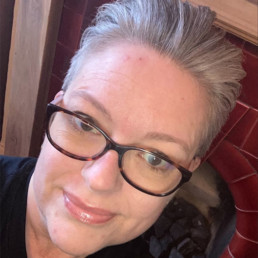
Written by Emma Ludlam
Emma has worked in Early Years for 14 years and is into her 8th year as Head of Nursery in a London Independent School. Emma has a background in the NHS and is passionate about Early Years education and development with a special interest in Disability, Diversity and Inclusion. Emma is also an EYFS Co-ordinator, dovetailing the two ends of the EYFS in her school.
I only ever knew one person with Dysphonia and Dysphagia before I was affected. My Father’s voice slowly disappeared and his swallowing was affected by Progressive Supranuclear Palsy. I always found it so distressing that he struggled to express his needs and couldn’t eat “normal” food because of the risk of choking. I never imagined I would be in a similar position in my early 40s.
In 2020, some surgery to my throat caused some nerve damage, leaving me with a paralysed vocal cord. My cord became peeled back and stuck, exposing my airway and damaging my voice.
Until you lose your voice, you have no appreciation of how much you rely on it and how much it makes you – you! As Early Years Professionals, we’re well practiced at supporting children to develop communication and language and readily support communication difficulties in the very young, those with EAL and those with a SEND that makes communication more challenging. I didn’t appreciate that I would find myself in Speech Therapy too as an adult. Voice disorders are wholly under-recognised; arguably less common than hearing or sight loss; people find it more difficult to be inclusive and more awareness is desperately needed. I am still me – just a very quiet me.
My voice is typically very weak and lacks volume. Even a simple boiling kettle can drown me out and I sound very raspy; very similar to someone with a bad dose of laryngitis. I lack expression and my tone sits a little higher than my pre-damaged voice. I have lost much of what makes me who I am. I cannot sing or laugh with any sound and the voices and accents used to read a good story, are no longer there. Dreams of reading Harry Potter to my grandchildren seem to slip further and further away. I used to love singing; (I’m not saying I was good!) whether it be in the shower, with young children or even belting out a good old Whitney Houston at karaoke – it’s something that has come very hard. I’ve upped my Lip Sync Battle game massively!
One of the more complex aspects of my condition is the accompanying dysphagia. At my worst, simply a sip of water would cause me to choke until my face was red and the tears rolled down my face. Eating is no longer an enjoyable experience; more a process of dodging aspiration and learning what you can eat and drink. Food becomes a hazard – the Squid Game of eating and drinking! Dysphagia increases risk of aspiration (food enters the trachea and lung) and can cause chest infections and pneumonia – the gift that keeps on giving! I now enjoy, safely, a partly liquidized diet and am more aware of what I can and can’t eat, but it means eating in public or outside of home is still incredibly tricky and embarrassing for me.
So how do I function? Adaption and acceptance (which is very hard to achieve) is a huge proportion of “moving on.” Waking up from anaesthesia to find yourself so changed is a real challenge. There are several aids that I couldn’t live without. My dog has been incredibly adaptive and now knows that when I grab my high decibel whistle (because I cannot call or shout) that it’s time for a walk and he has taken on board a change to hand signals well – it seems you can teach an old dog new tricks! The children I work with have been the most adaptive and that gives me real heart for the future of diversity and inclusion in all walks of life – they are our future. They have accepted my voice amplifier (a small speaker box I wear attached to a mic headset) and this helps me to be louder and is less straining for me. On most video calls, I think people assume it’s just a mic – it’s slightly less familiar when worn off screen. My other most treasured possession is my face mask from National Spasmodic Dysphonia Association which reads “Bear with me I have a voice disorder;” it allows people in shops etc an opportunity to understand my needs and help me – hearing me through a mask is impossible. I also use my iPhone to write notes for others to read.
It is essential that we take time to understand all types of communication needs. We need assistance; understand I have a lot to say and need that chance. Accepting that we cannot take speech for granted when engaging with others is a huge first step. Maintaining independence and inclusion should be our aim in all walks of life.
I challenge you to a Lip Sync Battle!

